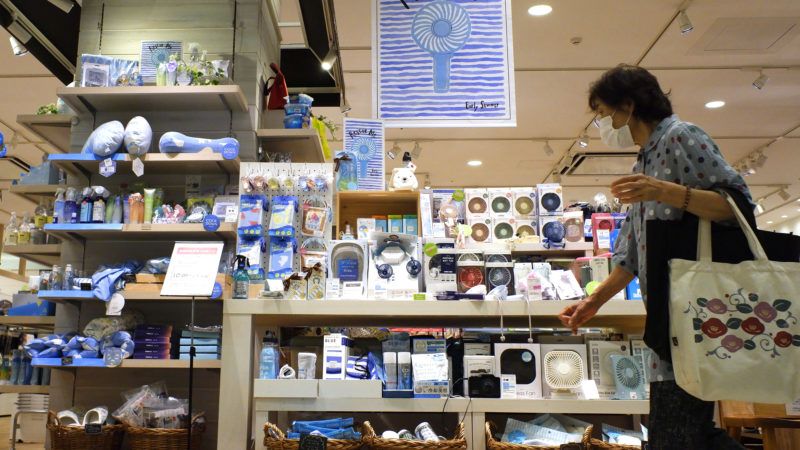239 Scientists Ask WHO To Change Its Position on How COVID-19 Spreads Through Air
Plus: debunking antitrust myths, defunding U.S. Air Marshals, and more...

Research scientists want less emphasis on hand-washing, more on masks. A group of 239 scientists from 32 countries is asking the World Health Organization (WHO) to revise its position on the airborne spread of COVID-19.
The change could "cause an enormous shudder through the infection control society," said New South Wales University epidemiologist Mary-Louise McLaws, part of a WHO committee on the issue.
But this brewing battle will likely have little impact on behavior, at least in America, where coronavirus containment measures have depended little on the slow-moving advice of public health bodies or state and federal authorities. Many of us have been doing things like wearing masks inside stores and other businesses, keeping our distance from others within them, and avoiding them if they're too crowded—regardless of, or with no idea about, what the WHO recommends. We've been hearing for months that droplets from people infected with the new coronavirus could linger in the air and cause new infections, and doing our best to take precautions.
Precisely how much danger aerosol droplets from COVID-19 patients pose is still unclear.
"There is no incontrovertible proof that SARS-CoV-2 travels or is transmitted significantly by aerosols, but there is absolutely no evidence that it's not," Trish Greenhalgh, a doctor at the University of Oxford, told The New York Times.
For a while, however, most scientists have seemed more worried about the airborne spread of COVID-19 than surface-based spread.
But not the WHO. "Even in its latest update on the coronavirus, released June 29 … [it] said airborne transmission of the virus is possible only after medical procedures that produce aerosols, or droplets smaller than 5 microns," notes the Times. The WHO's focus has been to emphasize surface-based spread.
In not recommending precautions against airborne spread, the WHO is lagging behind not only scientists but basically everyone else, too.
This isn't the first time in this pandemic that the WHO—or public health authorities and government "experts" more broadly—have sowed scientific confusion or lagged on recommending things that many people and businesses are already doing and many individual scientists and medical workers were already encouraging.
The good news: nobody seems to be waiting for the WHO catch up—and the precautions a lot of people are currently taking to stop indoor transmission are probably fine.
Bill Hanage, an epidemiologist at Harvard University, told the Times we needn't go overboard with fear of the virus hanging in the air:
We have this notion that airborne transmission means droplets hanging in the air capable of infecting you many hours later, drifting down streets, through letter boxes and finding their way into homes everywhere.
But that's not the case.
As the Times explains, "the coronavirus seemed to be most infectious when people were in prolonged contact at close range, especially indoors, and even more so in superspreader events—exactly what scientists would expect from aerosol transmission."
WHO members told the Times that airborne spread was downplayed because they worried that it would distract people from handwashing or that it would lead poorer hospitals and countries to divert resources from other strategies.
In interviews, other scientists criticized this view as paternalistic. "'We're not going to say what we really think, because we think you can't deal with it?' I don't think that's right," said Don Milton, an aerosol expert at the University of Maryland.
QUICK HITS
New report: Are markets becoming more concentrated? Not really, says @JV_Kennedy. In the vast majority of markets, concentration remains well below the levels that trigger antitrust concerns. https://t.co/bSi5O2Nemy
— Information Technology and Innovation Foundation (@ITIFdc) July 4, 2020
• "When A.B. 5 took effect in California on January 1, we didn't see hundreds of companies convert independent contractors into employees. Instead, thousands of independent contractors lost work they loved, sometimes ending up without any income at all," writes Kim Kavin.
• Defund U.S. Air Marshals? A thread:
https://twitter.com/KarlMuth/status/1279915199307210752
• Food and Drug Administration commissioner Stephen Hahn said it's "too early to tell" whether the Republican National Convention that's scheduled for Jacksonville in August will be able to happen.
• Kanye West tweeted Saturday night that he's running for president.


Show Comments (483)